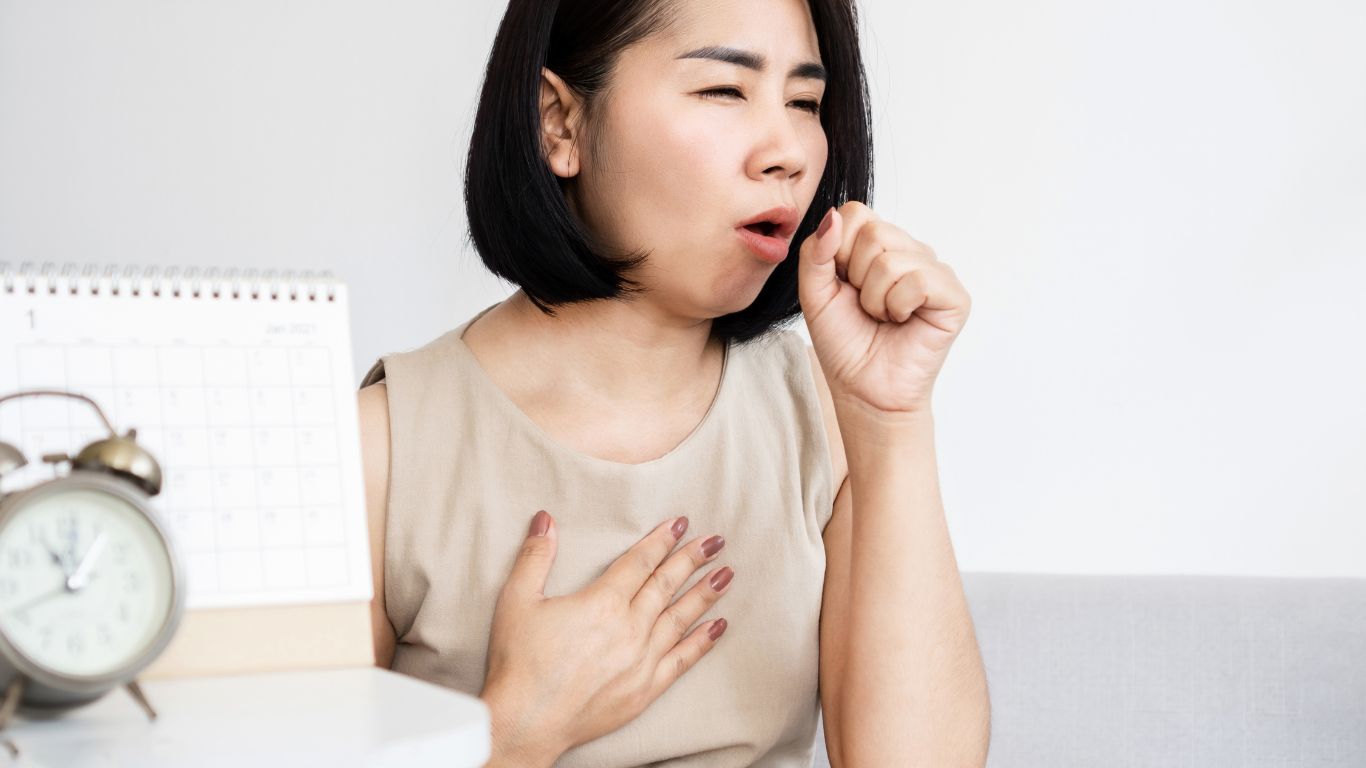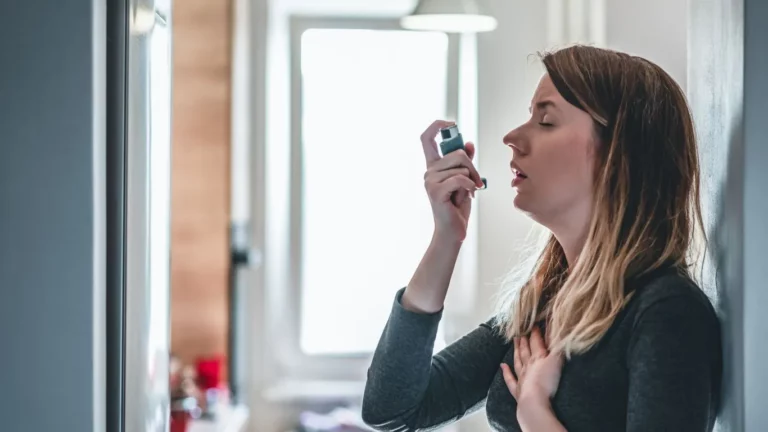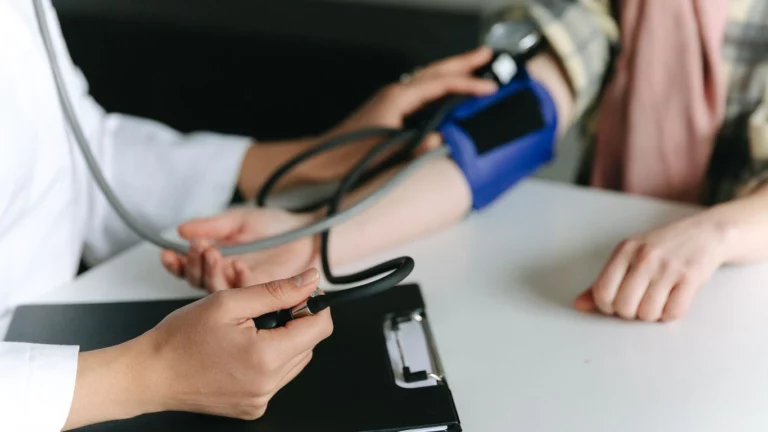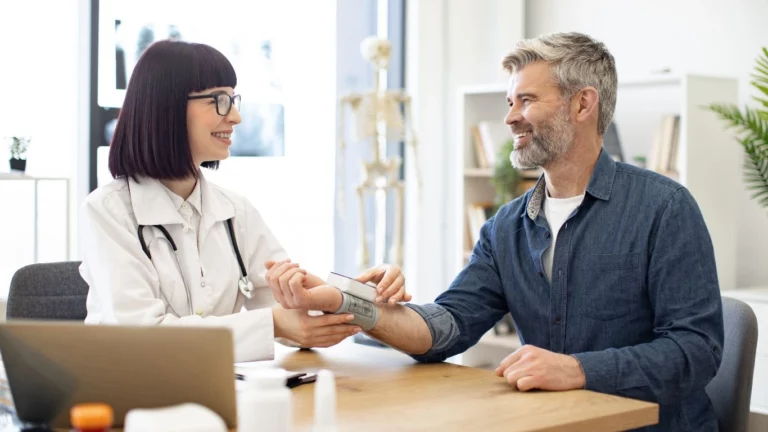Why GERD and Hiccups After Eating Can Disrupt Your Daily Life
Ever felt that annoying hiccup attack right after finishing a meal, especially when you also deal with GERD and hiccups after eating? You’re not alone. As a Medical Assistant working in a busy Gastroenterology Clinic, I’ve seen countless patients come in puzzled and frustrated about these symptoms. It’s actually pretty common for folks with GERD (Gastroesophageal Reflux Disease) to experience hiccups after eating, and understanding why this happens can make a huge difference in how you manage it day-to-day.
Why Do GERD and Hiccups Often Show Up Together?

First off, let’s break down what’s really going on. GERD occurs when stomach acid flows back up into your esophagus, the tube that connects your throat to your stomach. This reflux irritates the lining of your esophagus, causing that classic burning sensation, or heartburn. But here’s the kicker — this acid irritation can also stimulate your diaphragm, the muscle that controls your breathing and hiccups.
Think of hiccups as little spasms of the diaphragm muscle. When the esophagus is inflamed or irritated, it can send signals to the diaphragm, triggering these spasms. And after eating, your stomach is full, which can put additional pressure on the lower esophageal sphincter (LES)—the gatekeeper muscle between your stomach and esophagus—making reflux more likely and the hiccups more persistent.
The Connection From My Experience
In my time helping patients at the gastro clinic, I noticed a lot of them mentioning hiccups as an annoying side effect of their reflux symptoms, especially after meals. It’s something doctors don’t always highlight, but it can really disrupt your day or night. One patient told me she dreaded family dinners because those hiccups could last for hours afterward, making her feel uncomfortable and even a bit anxious about eating.
Common Triggers of GERD and Hiccups After Eating

Not every meal causes these hiccup attacks, though. Certain foods and behaviors can make both GERD and hiccups worse. Here are some of the usual suspects I frequently discuss with patients:
- Spicy and fatty foods: These tend to relax the LES, allowing acid to creep up easier.
- Carbonated drinks: Bubbles create gas, which increases stomach pressure and the chance of reflux.
- Large meals: Overfilling your stomach puts more pressure on the LES and diaphragm.
- Eating too fast: Swallowing air or not chewing well can lead to bloating and hiccups.
- Alcohol and caffeine: Both can irritate the esophagus and stimulate acid production.
Why Timing Matters
Another key factor is when you eat. Patients often tell me their hiccups hit hardest right after eating or when lying down shortly afterward. That’s because digestion is a full-time job, and if you lie down too soon, acid can move back into the esophagus more easily. Staying upright for a while after meals can make a big difference.
How GERD and Hiccups Affect Daily Life

Let’s be real: persistent hiccups paired with GERD can be more than just annoying—they can seriously impact your quality of life. From interrupted conversations to trouble sleeping, these symptoms can sneak into all parts of your day. I remember one patient telling me how hiccups would start during meetings or social events, making her self-conscious and worried about drawing attention.
But here’s the good news — understanding the relationship between GERD and hiccups is the first step to finding relief. Managing what you eat, how you eat, and making simple lifestyle tweaks can help you regain control over your symptoms.
Practical Tips to Manage GERD and Hiccups After Eating

Okay, so now that we’ve unpacked why GERD and hiccups seem to tag-team after meals, let’s get into some real-world, practical ways to handle them. From my experience in the clinic, these simple lifestyle changes and tricks can be game changers — no complicated jargon, just stuff that actually works.
Eat Smaller, More Frequent Meals
This one’s a classic for a reason. Instead of stuffing your stomach at once, breaking your meals into smaller portions throughout the day can reduce that pressure on your LES and diaphragm. I often remind patients that less is more here. A lighter stomach means less chance for acid reflux and the diaphragm getting irritated, which means fewer hiccups.
Mind Your Meal Timing and Position
Another tip I share frequently: try not to eat too close to bedtime. When you lie flat soon after eating, gravity isn’t helping keep that acid where it belongs—in your stomach. Staying upright for at least two to three hours post-meal is ideal. If you can, take a gentle walk or sit comfortably rather than crashing on the couch. This small habit helped one of my patients stop those relentless hiccup attacks after dinner.
Choose Your Foods Wisely
Remember those pesky triggers from earlier? Cutting back on spicy, fatty, and carbonated foods can really make a difference. Also, I always encourage patients to keep a simple food diary — jot down what you eat and how you feel afterward. Over time, this can help you identify your personal “no-go” foods that set off GERD and hiccups. Here are some common foods to be cautious about:
- Tomatoes and citrus fruits
- Chocolate
- Garlic and onions
- Mint
- Fried or greasy dishes
When Over-the-Counter Remedies Can Help

While lifestyle tweaks are the foundation, sometimes you need a little extra help. Over-the-counter antacids or acid reducers can provide quick relief from the burning discomfort of GERD, which might indirectly calm those diaphragm spasms causing hiccups. From the clinic floor, I’ve seen patients benefit from using these medications occasionally, especially when symptoms flare up after a holiday feast or a big night out.
That said, it’s important not to rely on these all the time. If your symptoms persist or worsen, definitely check in with your healthcare provider. There might be other treatments or evaluations needed to get to the root of your reflux and hiccup issues.
My Two Cents on Natural Remedies
Patients often ask about natural or home remedies. Some swear by sipping warm water or ginger tea to soothe the stomach. Others find relief by gently holding their breath or sipping on small amounts of honey. These aren’t magic cures, but if they help you feel a bit better and don’t interfere with any medications, they’re worth a try.
Understanding When to See a Doctor

Most hiccups related to GERD are harmless and go away with lifestyle changes, but there are times when they signal something more serious. If your hiccups last more than 48 hours or are accompanied by symptoms like severe chest pain, difficulty swallowing, or weight loss, it’s time to seek medical advice. In my role, I often emphasize this because long-lasting hiccups can affect your nutrition, sleep, and overall wellbeing.
Doctors might recommend diagnostic tests such as an endoscopy or pH monitoring to get a closer look at what’s going on inside. Treatment plans can vary widely based on findings but usually include tailored medications, dietary advice, and sometimes even physical therapy for the diaphragm.
Working Together for Better Health
One of the best parts of my job is helping patients take charge of their digestive health through education and support. You’re not alone in dealing with GERD and hiccups after eating, and with the right guidance, you can find your rhythm again. The key is to stay observant of your symptoms, be patient with changes, and never hesitate to reach out to a healthcare professional when things feel off.
Long-Term Strategies for Managing GERD and Hiccups After Eating

After spending years assisting patients with digestive issues, I’ve learned that managing GERD and hiccups after eating isn’t just about quick fixes—it’s about building habits that stick. It can be tempting to look for an instant cure, but long-term relief often comes from consistent lifestyle adjustments and smart daily choices. Here are some practical strategies that have helped many people I’ve worked with:
Maintain a Healthy Weight
Carrying extra pounds can put additional pressure on your stomach, pushing acid upward and aggravating your LES. I often remind patients that even a modest weight loss can reduce GERD symptoms significantly, which also lessens the frequency of those pesky hiccup episodes. You don’t need to overhaul your entire lifestyle overnight—small, sustainable changes to diet and activity go a long way.
Mind Your Posture and Breathing
This might sound a bit unusual, but posture really matters. Sitting or standing straight reduces abdominal pressure, making reflux less likely. In the clinic, I’ve seen how diaphragmatic breathing exercises can also help relax the diaphragm muscle, decreasing spasms that cause hiccups. Try taking slow, deep breaths in through your nose and out through your mouth—this can calm both your digestive system and your nerves.
Manage Stress
Believe it or not, stress plays a sneaky role in digestive issues. Stress can increase stomach acid production and worsen reflux symptoms. Plus, it can make hiccups feel even more bothersome. From my experience, patients who practice stress-relief techniques—like meditation, yoga, or even simple mindfulness—often notice their symptoms improve. It’s about calming your whole body, not just your stomach.
When Medical Intervention Becomes Necessary
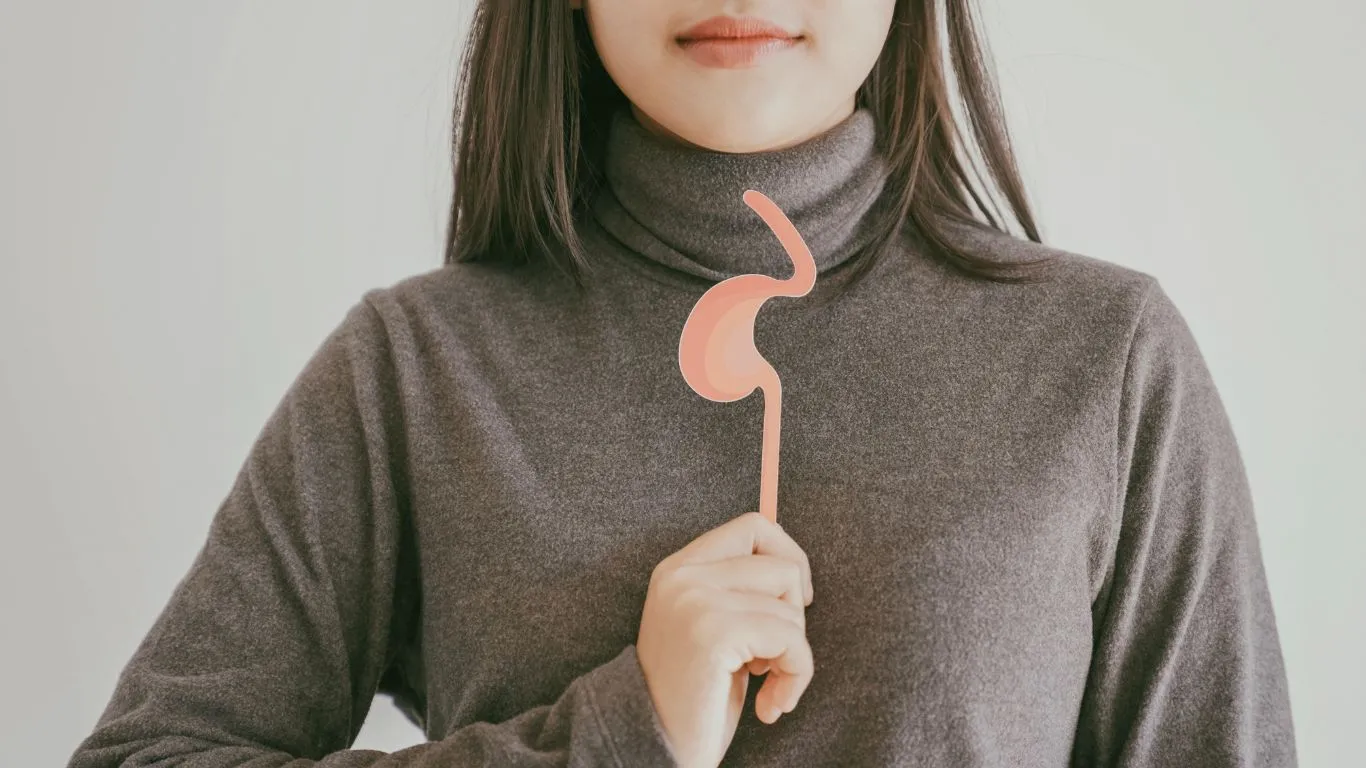
Despite all the self-care tips and lifestyle changes, some people will still struggle with persistent GERD and hiccups. That’s perfectly okay and something I see quite often. In cases where symptoms don’t improve or become severe, medical treatments are essential and can be highly effective.
Medications Your Doctor Might Recommend
Depending on the severity, your healthcare provider might suggest medications such as:
- Proton Pump Inhibitors (PPIs): These reduce stomach acid production and promote healing of the esophagus.
- H2 Blockers: Another class of acid reducers, often used for milder cases or as step-down therapy.
- Prokinetics: These help strengthen the LES and improve stomach emptying, reducing reflux.
Each medication has its pros and cons, so working closely with your doctor ensures you find the best fit. I always encourage patients to ask questions and share how they feel while on these treatments—open communication is key.
Advanced Therapies and Surgery
For some, especially those with severe or complicated GERD, surgical options like fundoplication or newer procedures might be recommended. These are usually last resorts but can provide significant relief when done by experienced specialists. In the clinic, I’ve seen how surgery can transform lives, but it’s definitely not for everyone and requires careful evaluation.
My Personal Takeaway from Working in Gastroenterology
Having spent years in a Gastroenterology Clinic, I’ve witnessed how frustrating GERD and hiccups after eating can be—not just physically but emotionally too. The discomfort, the interrupted meals, and the worry about what to eat next can weigh heavily on someone. What I’ve learned is that empathy and education are just as important as any treatment.
When you understand your body, know your triggers, and develop a plan that fits your lifestyle, it’s possible to reduce both GERD symptoms and those annoying hiccups. It’s about progress, not perfection. And if you ever feel stuck, don’t hesitate to lean on your healthcare team—they’re there to guide you every step of the way.
References
Disclaimer
This article is for informational purposes only and is not a substitute for professional medical advice, diagnosis, or treatment. Always seek the advice of your physician or other qualified health provider with any questions you may have regarding a medical condition.

Camellia Wulansari is a dedicated Medical Assistant at a local clinic and a passionate health writer at Healthusias.com. With years of hands-on experience in patient care and a deep interest in preventive medicine, she bridges the gap between clinical knowledge and accessible health information. Camellia specializes in writing about digestive health, chronic conditions like GERD and hypertension, respiratory issues, and autoimmune diseases, aiming to empower readers with practical, easy-to-understand insights. When she’s not assisting patients or writing, you’ll find her enjoying quiet mornings with coffee and a medical journal in hand—or jamming to her favorite metal band, Lamb of God.

